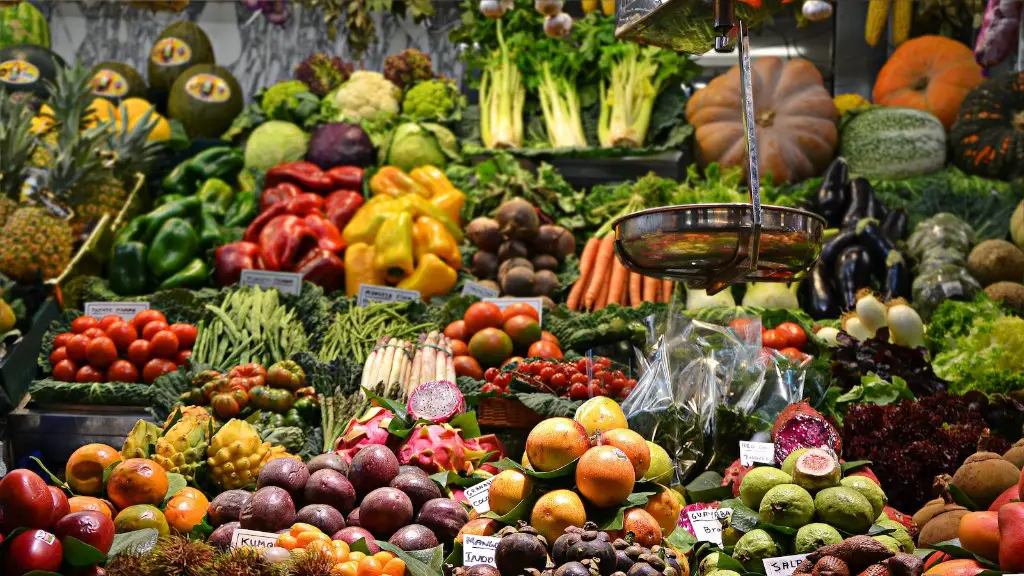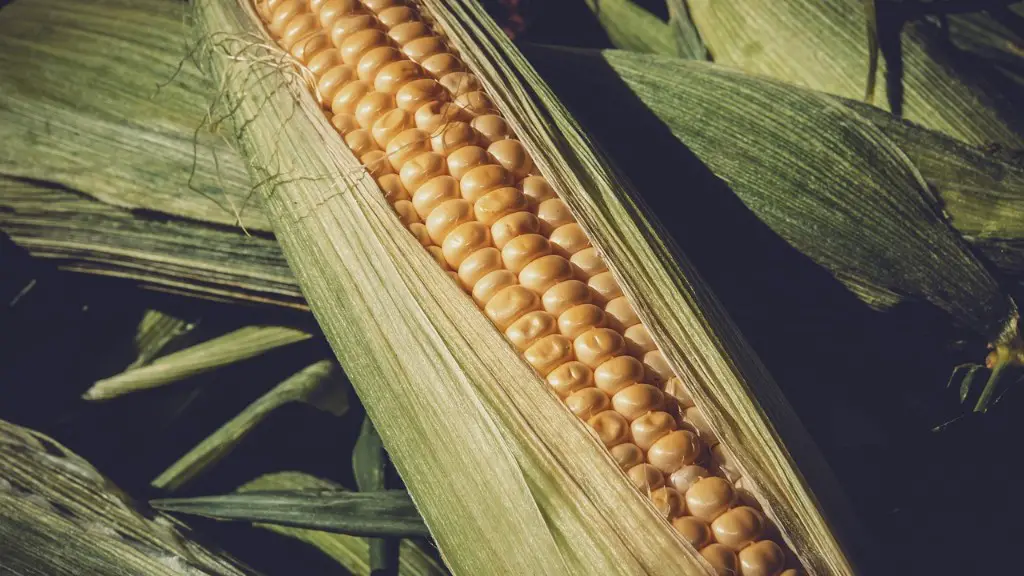Farmers use a variety of chemicals to improve their crops. Fertilizers help plants to grow faster and stronger, while pesticides protect them from pests and diseases. Herbicides are used to control weed growth, and fungicides help to prevent fungal diseases.
One of the main ways chemistry is used in agriculture is in the form of fertilizers and pesticides. Fertilizers help to provide plants with the nutrients they need to grow, and pesticides help to protect plants from pests and diseases. In addition, agricultural chemicals such as herbicides and insecticides are also used to control weeds and pests.
How does chemistry improve agriculture?
Agricultural chemists work to develop new chemicals to increase crop production and yield, defend against pests, and protect the environment. Animal scientists conduct research concerning animal nutrition; studying animal genetics, nutrition, diseases, and more.
Agricultural chemistry is used to produce pesticides and insecticides, which are used on a large scale to prevent external organisms from harming crops. This includes rodenticides, pediculicides, biocides, fungicides, herbicides, etc.
What is the role of chemistry in agriculture *
Chemistry has played a vital role in increasing crop production through the use of fertilizers. Fertilizers are chemical substances that are used to make the soil more fertile and increase crop production. They are made from nitrogen, phosphorous, and potassium. Chemistry is also used to make pesticides and insecticides, which are used to protect crops from pests and diseases.
Crops need four things for good growth: sunlight, water, nutrients from the soil, and protection from predators such as insects. Chemistry has made major contributions within water usage, nutrient availability, and plant protection.
Water usage:
Chemistry has helped to improve irrigation techniques, which has led to more efficient use of water resources.
Nutrient availability:
Chemistry has helped to develop fertilizers, which provide plants with the nutrients they need to grow.
Plant protection:
Chemistry has helped to develop pesticides, which can protect crops from predators such as insects.
Does agriculture need chemistry?
Chemistry is a valuable tool for agricultural, environmental and food scientists because it allows them to understand and manipulate the chemical bonds in plants and animals. This knowledge can be used to improve crop yields, develop new and more efficient methods of food production, and protect the environment from harmful chemicals.
Biocatalysts are enzymes that can speed up chemical reactions. They have been used increasingly in agrochemicals, pharmaceuticals, and food industries, as they can help in reducing waste and improving the yield of products. In addition, biocatalysts can be used to create green inputs for sustainable agriculture productions and protections.
What is the relationship between chemistry and agriculture?
Modern agriculture is highly dependent on the use of advanced scientific techniques. These scientific techniques rely mostly on chemistry. Through the production of pesticides, fertilizers, and antibiotics, it is evident that chemistry has played a significant role in maximizing the yield of animal products and crops.
The use of pesticides, fertilizers, and antibiotics has helped to increase the yield of crops and animal products. However, the use of these chemicals has also led to environmental concerns. The overuse of pesticides has been linked to the decline of bee populations, while the overuse of antibiotics has been linked to the development of antibiotic-resistant superbugs.
To sustain the modern agricultural system, it is important to find a balance between the use of chemicals and the protection of the environment.
Analyzing soil chemistry can give important insights into the health of an ecosystem. By determining the levels of nutrients and contaminants, we can learn if the soil can support plants and other organisms, or if it is at risk of poisoning them. This information is vital for managing and protecting our natural resources.
What is the role of chemistry in improving agricultural and industrial processes
Chemists play an important role in developing new products and processes that can help improve agriculture and industry. It is essential that this work is done in a sustainable way, so that future generations can also benefit. By working to develop more efficient and environmentally friendly products and processes, chemists can help make a difference in the world.
One way to improve the quality of soil is to use agricultural chemicals such as fungicides, insecticides, herbicides, and other pesticides. Agricultural chemists work on developing effective materials that can help preserve the quality of soil and improve its fertility.
What is chemistry in plants?
Plants produce a wide variety of chemicals that are not found in other organisms. These chemicals are necessary for plants to function and survive. Photosynthesis, for example, requires a large array of pigments, enzymes, and other compounds to function. Without these chemicals, plants would not be able to survive.
Soil chemistry can be considered as the natural chemical composition of a given soil. This natural chemical composition of a soil is a function of that soil’s parent material. In many areas of the world soil is formed in place and derived directly from the weathering and degradation of rocks.
Which chemical is used for plant growth
Auxins, gibberellins and cytokinins are the plant hormones which promote growth of plants. Auxins promote cell division, which leads to plant growth. Gibberellins stimulate cell elongation, which leads to plant growth. Cytokinins promote cell division and cell growth. All three of these hormones are essential for plant growth.
Phytochemicals are chemicals derived from plants, and phytochemistry is the study of these chemicals. Phytochemicals can be found in all parts of the plant, including the roots, stems, leaves, flowers, and fruit. They can be divided into four main groups: alkaloids, terpenes, phenols, and flavonoids. Alkaloids are nitrogen-containing compounds that have a wide range of physiological effects, including analgesia, sedation, and stimulation. Terpenes are a group of volatile organic compounds that are often responsible for the smell of plants. Phenols are a group of organic compounds that contain a benzene ring. Flavonoids are a group of phenolic compounds that are often responsible for the color of plants.
What chemicals are used to grow plants?
All of the above mentioned elements are essential for plant growth. Nitrogen, phosphorous, potassium, sulfur, calcium, magnesium and sodium are needed in larger quantities, while trace elements are needed in smaller quantities. All of these elements play an important role in plant growth and health.
Soil pH is a measure of the number of hydrogen ions (H+) present in a solution. The more H+ ions in the soil, the more acidic the soil is. The less H+ ions in the soil, the more basic or alkaline the soil is.
pH is important because it affects the availability of nutrients to plants and the activity of microorganisms in the soil. For example, most plants need a pH between 6.0 and 7.0 in order to be able to take up nutrients from the soil. Also, the activity of many soil microorganisms is affected by pH. For example, bacteria that break down organic matter are more active in neutral and slightly acidic soils, while fungi are more active in neutral to slightly alkaline soils.
If the pH of your soil is outside of the ideal range for plants, you can adjust it by adding amendments such as lime (to raise the pH) or sulfur (to lower the pH).
Conclusion
Organic chemistry is integral to agriculture. It helps farmers ensure that their crops are healthy and free of pests and diseases. It also helps them improve the quality of their soil. In addition, agricultural chemists develop new ways to increase crop yields and to make use of new technologies.
Agriculture is the backbone of most developing economies. It is the primary source of food, feed, and fiber for the world. Chemistry is used in agriculture to improve crop yields, to develop new and improved crop varieties, to monitor and control pests and diseases, and to protect and enhance the quality of food products.





